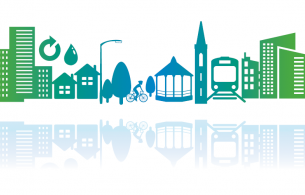SEAI has published two separate energy reports, the Energy in Ireland 2023 report and the first report from the Behavioural Energy and Travel Tracker.
The annual Energy in Ireland report profiles trends in the supply and demand of energy and energy related CO2 emissions in 2022 and 2023. The Behavioural Energy and Travel Tracker (BETT) looks at survey responses to understand people’s energy behaviours and the underlying factors behind them.
The Energy in Ireland 2023 report highlights the twin dependencies of Ireland’s energy supply – we imported 81.6% of our energy in 2022, and 85.8% of our energy came from fossil fuels. Energy emissions in 2022 were the lowest of any year in the last quarter century, except 2020 with its particularly strong COVID impacts. However, the pace of emission reductions is not sufficient to meet our national climate obligations.
In 2022, transport energy demand rebounded to 95% of pre-COVID 2019 levels, and data from January to September 2023 indicates continuing rebounds in petrol, diesel, and jet kerosene demand. SEAI analysis indicates that transport emissions this year will likely be higher than last year, at odds with the obligations of our legally binding carbon budgets.
In the first nine months of 2023, Ireland imported over 9% of its electricity, significantly reducing Ireland’s electricity emissions in that period. SEAI analysis indicates that electricity emissions in 2023 may be down by as much as 25% on last year but highlights that the EU/UK carbon price differential driving these electricity imports could disappear as markets rebalance, or as EU legislation is introduced.
Speaking about the Energy in Ireland report, Director of Research and Policy Insights with SEAI, Margie McCarthy, said, “despite the excellent progress made on renewable electricity, the momentum of our home energy upgrades, and the uptake of electric vehicles, Ireland remains highly dependent on imported fossil fuels to satisfy our energy needs. Our investments in energy efficiency and our development of indigenous renewable energy sources are slowly starting to break that dependency. We can point to significant inroads in biofuel use in transport, in the deployment of larger solar farms, and the displacement of fossil fuels through heat pumps. However, it is all too slow. Unless we accelerate, the pace of change will not be enough for us to achieve our national and EU obligations. Despite all the evidence, we are not yet acting in line with what climate science tells us, that we are living through a climate emergency.”
In a separate but related report, the first results report from the Behavioural Energy and Travel Tracker, sets out analysis of the everyday energy behaviours of people in Ireland from December 2022 – April 2023. Among the findings were that people reported a high understanding of how to save energy and said they were making a substantial effort to use energy efficiently.
However, there are a number of areas in which people are using energy inefficiently. Over the study period, more than one in five participants travelled by car for a short journey on a given day, and a similar number used a tumble dryer. Up to 40% of people heated empty rooms or an unoccupied home, and a quarter of thermostat owners had theirs set to 21°C or higher. Interestingly, less than half the sample said their home had a thermostat installed in the first place.
The analysis also found that many Irish people were at risk of energy poverty last winter and are therefore likely to be again this winter, with over a third of the sample consistently reporting having difficulty paying their energy bills.
Speaking about the Behavioural Energy and Travel Tracker, SEAI Director, Margie McCarthy, said, “around 45% of Ireland’s energy use is for direct personal consumption, primarily in our homes and in our cars. So, it is absolutely essential that we all become more energy efficient to reduce our greenhouse gas emissions; to insulate ourselves from high energy prices; and to reduce the chance of outages or fuel shortages. We also need systemic change, beyond what individuals can do, to address the current energy and climate crises. This report shows that while the activities of governments and systems are crucial, the everyday choices that people make have a major role to play.”
Source: SEAI













